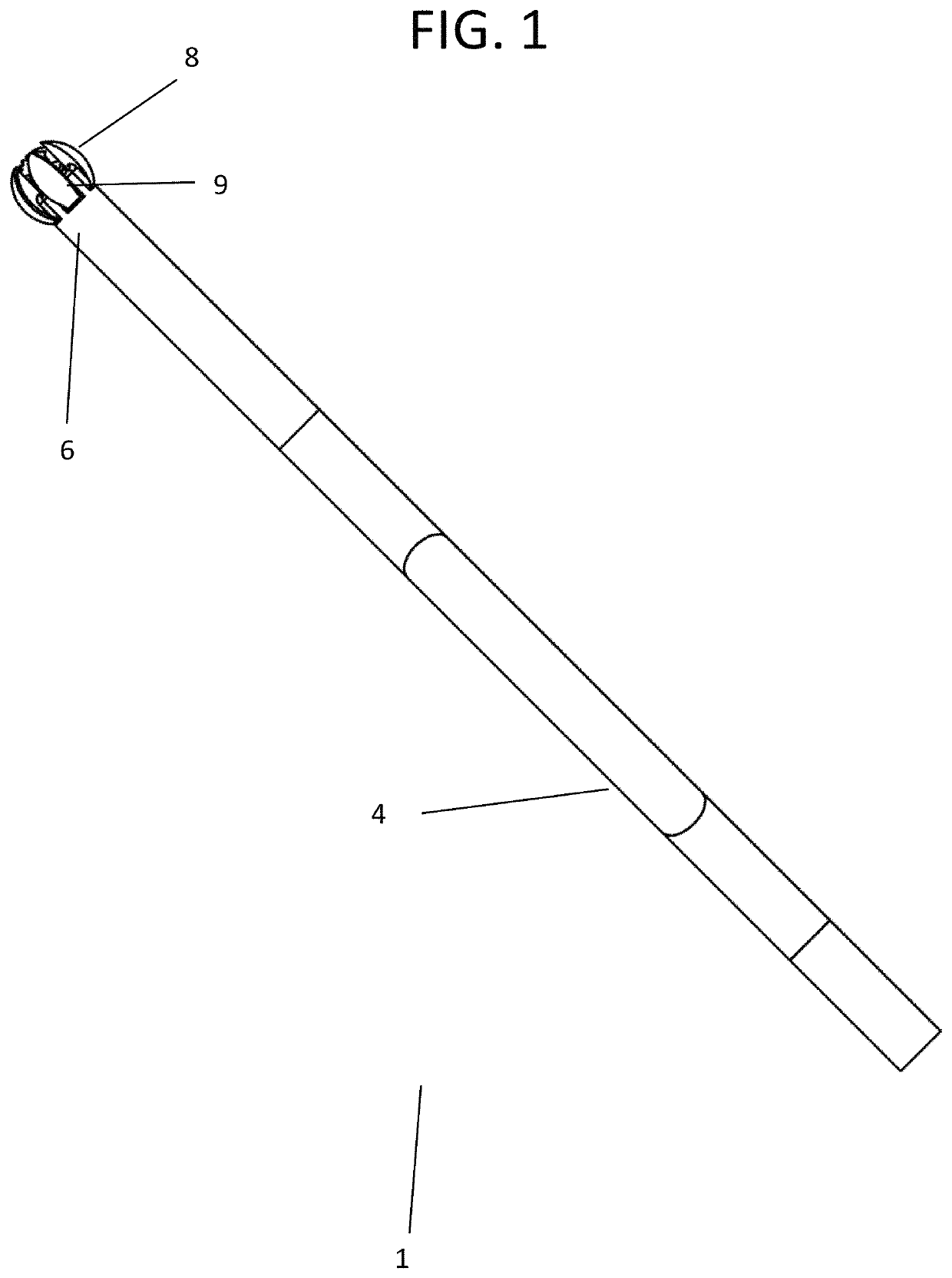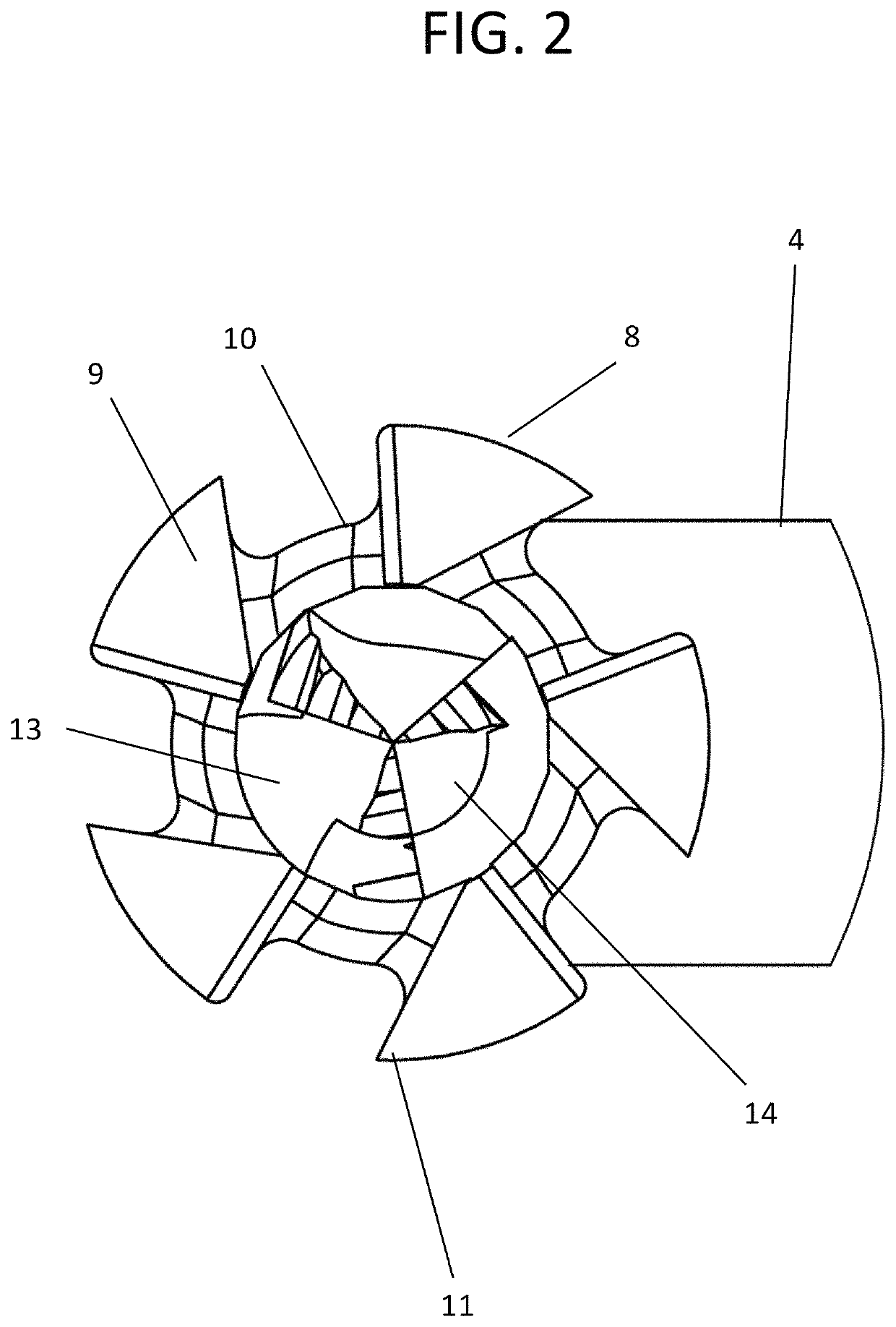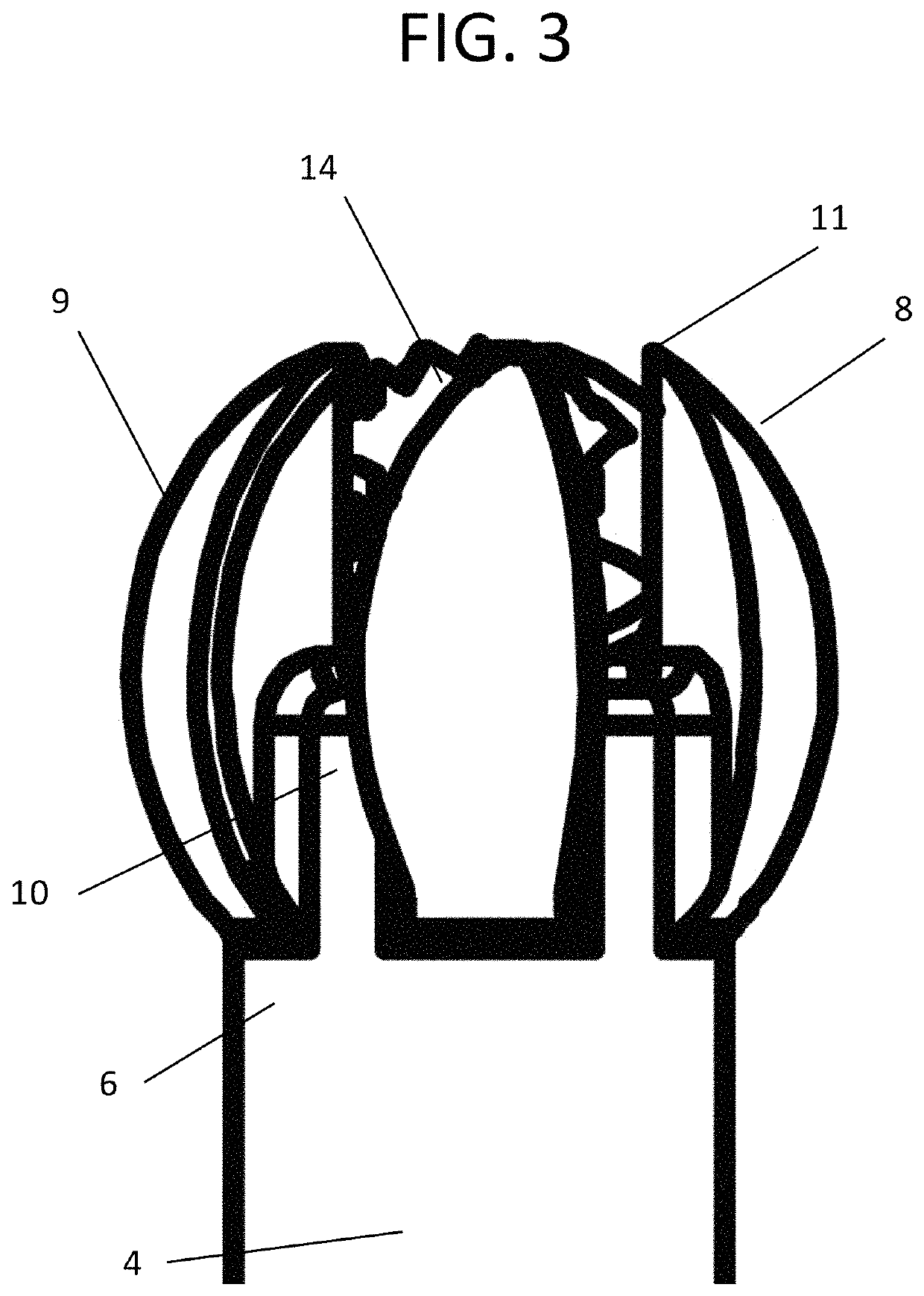Catheter atherector
a technology of catheter atherector and catheter atheroscopy, which is applied in the field of improved catheter athereroscopy, can solve the problems of scar formation, blockage of the flow of the vessel, and low blood flow, and achieve the effects of improving the flow rate of the vessel
- Summary
- Abstract
- Description
- Claims
- Application Information
AI Technical Summary
Benefits of technology
Problems solved by technology
Method used
Image
Examples
Embodiment Construction
[0051]While several variations of the present invention have been illustrated by way of example in particular embodiments, it is apparent that further embodiments could be developed within the spirit and scope of the present invention. However, it is to be expressly understood that such modifications and adaptations are within the spirit and scope of the present invention, and are inclusive, but not limited to the following appended claims as set forth.
[0052]As illustrated in FIGS. 1-15, the subject invention discloses a catheter atherector for use in minimally invasive intravascular plaque removal from inner walls 2 of blood vessels 3.
[0053]The catheter atherector 1 comprises a catheter 4 containing a hollow elongated lumen 5 with a distal end 6 with an opening 7 surrounded by a slotted emulsification reduction sphere 8. In embodiments of the subject invention, the catheter 4 has a diameter of 1 to 6 millimeters. The slotted emulsification reduction sphere 8 contains a plurality of...
PUM
 Login to View More
Login to View More Abstract
Description
Claims
Application Information
 Login to View More
Login to View More - R&D
- Intellectual Property
- Life Sciences
- Materials
- Tech Scout
- Unparalleled Data Quality
- Higher Quality Content
- 60% Fewer Hallucinations
Browse by: Latest US Patents, China's latest patents, Technical Efficacy Thesaurus, Application Domain, Technology Topic, Popular Technical Reports.
© 2025 PatSnap. All rights reserved.Legal|Privacy policy|Modern Slavery Act Transparency Statement|Sitemap|About US| Contact US: help@patsnap.com



